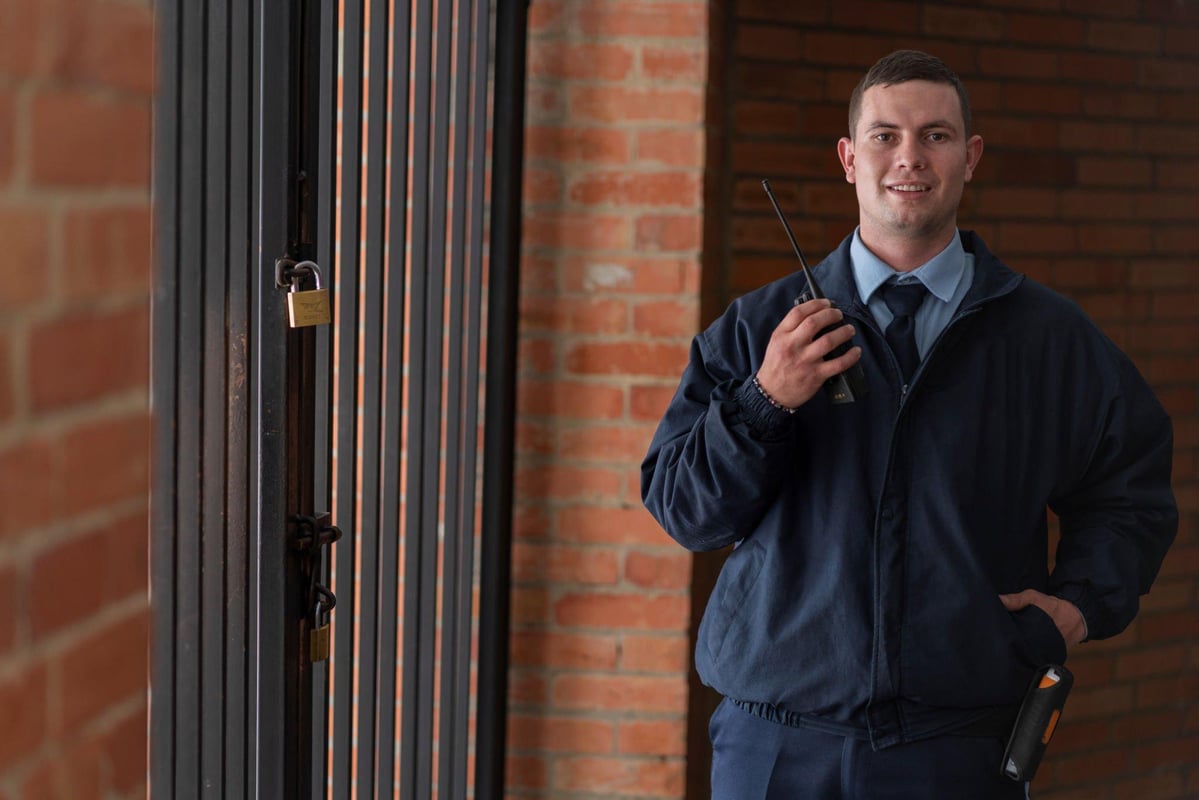
Financial aid (may be available)

Financial aid (may be available)

Financial aid (may be available)

Financial aid (may be available)
$80 total
$24.99 total
$80 total
No cost info

No cost info
No cost info
No cost info
No cost info
$120 total
No cost info
Setting your sights on becoming a security guard in Boston? There are numerous training programs available to help you achieve your goal. In this guide, we will explore what you need to know about the security guard profession, training requirements, what to expect from classes, the certification process, and how to find related jobs. We'll also provide you with insights on other classes you can consider taking after becoming a security guard.

Security guards play a crucial role in maintaining the safety and security of properties, assets, and individuals. They may work in various environments such as shopping malls, office buildings, events, and more. Their duties typically include patrolling designated areas, responding to emergencies, and monitoring surveillance systems.
To become a security guard in Boston, you're required to undergo specific training. These requirements might vary depending on the type of security guard you wish to become. Some of the essential training requirements include:
Basic Security Training: This usually covers topics such as ethics and conduct, emergency response procedures, and basic first aid.
Firearms Training: If you're aiming to become an armed security guard, additional firearms training is necessary. This includes learning about firearms safety, maintenance, and laws.
Specialized Training: Depending on the job, you might need additional training in areas like crowd control, crisis intervention, or use of non-lethal force.
Choosing the right security guard class is essential in shaping your career. Here are some factors to consider:
Accreditation: Ensure the program is recognized by the relevant regulatory bodies.
Curriculum: The program should cover all the necessary subjects that align with the state's requirements.
Instructors: Experienced instructors can provide practical insights into the profession.
Most security guard classes combine both classroom instruction and practical training. You can expect to learn about laws and regulations, report writing, conflict resolution, and emergency response procedures. Practical training often includes physical conditioning, patrol techniques, and, in some cases, use of firearms.
After completing your training, you'll need to apply for certification. This typically involves passing an examination and a background check. Once certified, you'll be eligible to work as a security guard in Boston.
Once you've obtained your certification, you can start applying for security guard positions. Numerous online job boards, recruitment agencies, and networking events can help you find opportunities. Moreover, many training programs offer job placement assistance to their graduates.
could provide you with additional skills that are highly valued in the security industry.
In the fast-paced world of security, continual learning is crucial. Keeping up-to-date with the latest security technologies, tactics, and regulations can make you more efficient at your job.
Understanding the licensing and regulation requirements in Boston is critical to maintaining your eligibility to work as a security guard. Regularly check for updates to ensure compliance with the law.
Networking can open doors to new job opportunities and help you learn from experienced professionals in the industry. Participating in local industry events, joining professional associations, and maintaining an active presence on professional networking sites can be beneficial.
Becoming a security guard can be a rewarding career choice, offering opportunities for continual learning and advancement. With the right training and determination, you can play a crucial role in maintaining safety and security in Boston.
Remember, choosing the right class is just the start of your journey. Lifelong learning, networking, and understanding the evolving industry regulations and standards are also important. If you're interested in branching out into related fields, consider other vocational training programs such as becoming a Physical Therapy Technician or a Medical Assistant. These professions can offer a change of pace while still allowing you to use your skills in security and safety.
Dreambound is your go-to for city-specific guides if you're starting in this field. And if you're in another location or considering a change, we've written several others as well.
Considering a change in your career? We've gathered some perspectives to help you in your journey. You can explore several of these:
(https://dreambound.com/view/organizational-leadership-and-change-training-boston-ma)
Dreambound's platform allows prospective students to find the right educational program for them through searching, filtering, and connecting with our extensive selection of career & technical education partners.
Dreambound has over 70 programs across healthcare, technology, business, and industrial trades. This includes programs such as Medical Billing, Cybersecurity, and welding.
Some of our schools offer financial aid for those who qualify. Many others offer payment plans, where you can pay the cost of class over time.
Yes, Dreambound offers many online programs. On Dreambound's search, you can filter by online, in-person, and hybrid (part online, part in-person).
Dreambound is completely free for you to use! We are supported by schools and organizations who pay to advertise on our website, so we can offer all of our career resources for free.